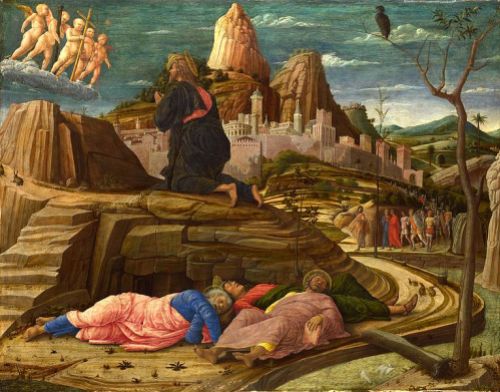There is a venomous snake in the garden. While the great Messiah and his disciples enter the garden, a certain snake-like figure named Judas knows precisely where the faithful are. He enters the garden knowing that this was a place of constant fellowship and peace. But Judas is not a man of peace and his fellowship with the Messiah has been broken. He is now a man at war and his loyalty is with the darkness.
In the Garden of Eden, the Great Serpent entered the garden to bring about chaos; to tempt the first Adam. Indeed he was successful. The first Adam failed in his loyalty to Yahweh, being deceived by the serpent in the garden, and thus, thrusting all mankind into a state of sin and misery. Now in John 18, the New Serpent enters the garden. He is possessed by the same devil that possessed the serpent in Genesis. It is this precise battle that is unfolding before us in this text. The question is: “Who owns the garden?”
Does Judas with his new found commitment to darkness and evil own the garden or does Jesus own the garden? As the text reveals to us we see that Judas, the son of perdition, seems to have the upper hand in this sacred dispute. In verse 12 we read:
So the band of soldiers and their captain and the officers of the Jews arrested Jesus and bound him.
Jesus is arrested and bound. They take him out of the garden bound like a defeated enemy. Now, in every conceivable scenario, this would be the historical determination that Jesus has lost. But if the Messiah is to bring this unshakable and unmovable kingdom with his coming, then how does this binding, this apparent defeat in the garden connect with this glorious kingdom? The answer to this question is: paradoxically. The coming of the kingdom is paradoxical. The kingdom does not come in the way and in the expression that many expected.
Now if the kingdom of God comes paradoxically, in a way unknown to the first century, then there may be a different way of understanding this garden scene. In this text, Jesus is not being bound because of defeat; he is being bound because of victory. Jesus’ arrest is his release. His arrest is not his binding, it may appear to be, but it is ultimately the binding of the evil one, the father of lies, Satan himself. This is why the gospel of Matthew tells us that Jesus is the One who bound the strong man. He is the One who arrested the Serpent and dragged him out of the garden. Jesus owns the garden, not Judas or His master, Satan.
This arrest and this binding of Jesus in the garden is not a plan gone awry, it is exactly what has been planned. In one sense, this arrest is the cosmic Trinitarian conspiracy against the kingdoms of this world. When evil leaders and governments think they have the Son of Man trapped, he fools them. As Psalm 2 says, “God laughs at their plans.” The conspiracy of the cross is that the cross is Christ’s sword to defeat evil. But the serpent does not know this. He is virtually blinded to the Messianic plan and nothing will stop Jesus from conquering evil and bringing in a new world, a new creation. The garden belongs to him, because the garden is where his people gather, and eat, and fellowship. The garden is the sacred space, the place of peace. Make no mistake, we are a warring people, but we war against the enemies of Messiah. In the garden, the King, Master, and Messiah says, “the gates of hell shall not prevail. Death dies once and for all and victory will come and we will celebrate it this Sunday. Today, though we fast, it is only a prelude to our coming feast. Jesus’ death marks the end of the serpent’s sting of death.


 Almighty God, whose most dear Son went not up to joy but first he suffered pain, and entered not into glory before he was crucified: Mercifully grant that we, walking in the way of the cross, may find it none other than the way of life and peace; through Jesus Christ your Son our Lord, who lives and reigns with you and the Holy Spirit, one God, for ever and ever. Amen.
Almighty God, whose most dear Son went not up to joy but first he suffered pain, and entered not into glory before he was crucified: Mercifully grant that we, walking in the way of the cross, may find it none other than the way of life and peace; through Jesus Christ your Son our Lord, who lives and reigns with you and the Holy Spirit, one God, for ever and ever. Amen.